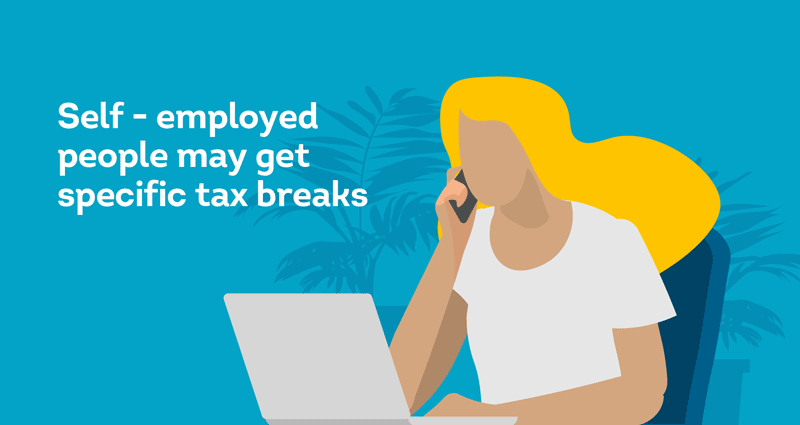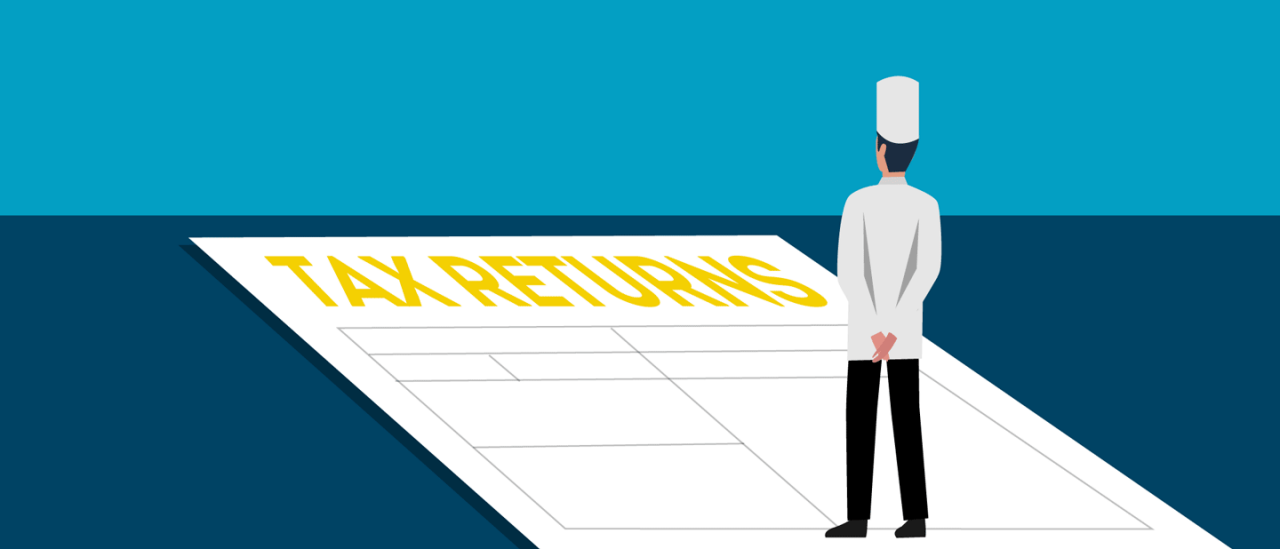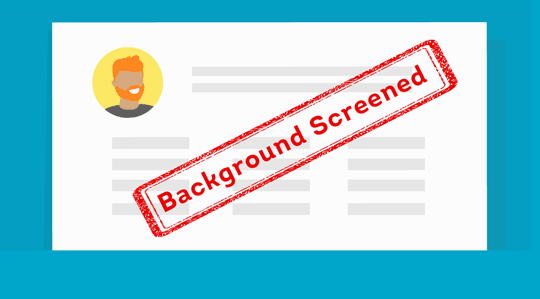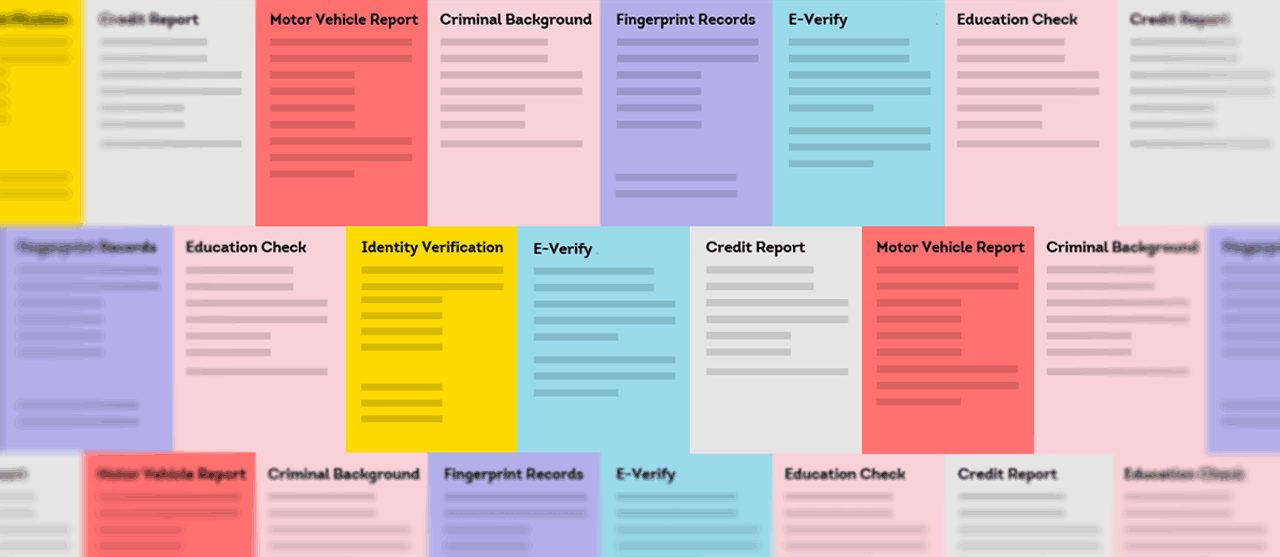Discover ways to help maximize your small business tax deductions: SMB tax breaks, preventing employee turnover, using professionals to file tax returns, changing business designations, and running employment background checks through ShareAble for Hires.
Disclosure: This content, except as otherwise indicated or stated on this site, is the property of TransUnion Rental Screening Solutions, Inc. This content is for educational purposes and for convenience only. Trademarks used are the property of their respective owners, and no endorsement or affiliation is implied. The information presented in this content is “as is” without warranties of any kind, and specifically is not represented to be complete and does not constitute legal advice, and is subject to change without notice. You are encouraged to check these terms from time to time for changes, and by accessing this site you agree to these terms and all terms listed. Laws and regulations may vary by state and locality. Consult your own counsel if you have legal questions related to your rental property practices and processes.
Disclaimer: Remember that this material is intended to provide you with helpful information and is not to be relied upon to make decisions, nor is this material intended to be or construed as tax and/or legal advice. You are encouraged to consult your tax professional or legal counsel for advice on your specific business operations and responsibilities under applicable law. Trademarks used in this material are the property of their respective owners and no affiliation or endorsement is implied.
Filing taxes isn’t exactly a game of full-on tackle football. However, if you don’t have a solid game plan, tax season can easily knock you down. Whether you’re a rookie business owner or have several seasons under your belt, each new filing year can send unexpected surprises rushing down the field right at you.
Existing laws change so previous deductions may no longer be available. With so many complex moving parts, it’s easy for small businesses to get left in the dust.
According to The Balance, even something as simple as paying payroll taxes incorrectly can result in major IRS penalties. Fumbling your tax strategy could mean losing hundreds––or even thousands––of dollars in fines and potentially facing painful legal proceedings. As your company is your livelihood, it’s important to reach the endzone by engaging in practices that help protect your investment.
Along with keeping documents organized and claiming all the applicable deductions, an opportunity to save money is preventing employee turnover due to ill-fitting hires. Afterall, on average it costs employers a whopping $4,129 per new hire––a number that could completely clobber your savings.
In addition to money, losing staff members means you also lose vital time to a new job search. To help prevent staff turnover and protect your profits, it’s essential to vet all serious job applicants with pre-employment screening through a reputable service like ShareAble for Hires®.
As you prepare to tackle tax filing, read on for strategic tips on how to possibly maximize small business tax savings throughout the year.
Here’s what the article includes:
- Keep Organized Records and Copies of Everything
- Claim Small Business Tax Credits
- Consider Working with a Professional
- Reduce Employee Turnover Throughout the Year
- Review Your Business Classification
- Treat Small Business Taxes as a Year-Round Responsibility
- Help Maximize Your Savings with ShareAble for Hires
1: Keep Organized Records and Copies of Everything

Having organized, complete records helps simplify tax filing. When you know where everything is, you don’t need to spend time chasing down old receipts or wondering if payroll files are complete.
To help streamline your small business tax filing process, here are some good record-keeping tips:
- Have a dedicated file system. Whether you keep digital or physical records, it’s crucial to use a standardized organization system. Alphabetize, assign client codes, sort them chronologically––just keep it simple and consistent.
- Create a document retention policy. Federal, state, and local laws may dictate the length of time you’re required to keep employee information like crucial background reports and files and other business documents. Make sure to research how long you need to keep these files in your region.
- Keep all receipts. This might sound simple, but it’s necessary. Keep any documentation relating to payments made or received. Categorize them by date and type. Consider using spreadsheets or accounting software to help you keep track.
- Scan papers to include in digital records. As with any important documents, it’s wise to have multiple copies. Scan paper copies into your secured digital files to keep everything in one place.
- Back up digital files. Files are lost all the time. Make sure to save everything in at least two physically separate places (e.g. hard drive and the Cloud). Better yet, use a computer system that automatically backs itself up.
- Keep records secure. Some files, like employee medical records, fall under special laws. According to the Society for Human Resources Management, these files must be kept secured and separate from other records. Even if your records don’t fall under protection laws, it’s a good practice to always keep sensitive files locked up and away from prying eyes.
If you have difficulty maintaining your own records, consider using one of the many commercially available record-keeping software solutions.
Pro Tip: Are you keeping your employee documents the right way Learn more about the three essential employee files you should already be keeping.
2: Claim Small Business Tax Credits

Make your business revenue stretch farther by claiming the deductions you may be entitled to.
Some deductions are available to all businesses. According to Nerd Wallet, others, like the Qualified Business Income Deduction, provide tax breaks specifically for self-employed people and small business owners.
NOLO gives some helpful examples of tax deductions for small businesses that could potentially be claimed on your tax return. These include:
- Car, if you use your personal vehicle for business purposes
- Home office, if you operate out of your home
- Insurance premiums
- Business books and educational materials
- Office supplies
- Necessary business travel, meals, entertainment, and tips
- Office coffee service
- Tax preparation resources
- Office equipment
Personal tax and business situations vary and deductions might not apply in every case. Make sure to review the IRS Tax Guide for Small Businesses and consult with a tax professional to discuss your business expenses and the ability for your business to claim any tax deductions.
3: Consider Working with a Professional

When in doubt, consult an expert. It can be challenging for small business owners to capture obscure deductions, strategically situate a business for ideal profits, or keep up with changing tax laws.
Anytime you hire an outside professional like a tax preparer or CPA, it’s important to review their professional certifications and ask questions about their experience and qualifications.
Some questions you could ask before hiring a financial expert include:
- Do you have experience with small businesses in my industry
- Are you licensed to practice in this state
- How long have you been practicing/in business
- What is the cost breakdown for your services
- Is year-round support included in the cost
- What happens if I get audited
Once you hire a tax professional to help with your small business, here are some examples of questions you may want to ask:
- What kind of structure is best for my company
- Are there any additional deductions I’m missing
- Should I change anything about my employee benefits program
- What are some realistic business goals I could achieve
- Can I claim carryover losses or set-up expenses
Hiring a financial adviser, accountant, business tax expert, or other similar freelance professional might help you discover opportunities you overlooked. Yes, professionals don’t often come cheap. However, the potential tax relief, time savings, and stress reduction of hiring a professional is usually worth it.
4: Reduce Employee Turnover Throughout the Year

Most employers work hard to reduce employee turnover––and it’s no wonder. There’s the headache of managing outgoing and new employee paperwork, tweaking payroll documents, and the thousands of dollars spent on finding and hiring a new employee.
If all that wasn’t bad enough, a rotating door may cost you more in taxes. According to the Department of Labor, it’s possible that frequent layoffs and high employee turnover could negatively impact your tax burden––and may even increase your unemployment insurance rates.
Additionally, there are some cases, for example during the pandemic, where the U.S. government provides tax incentives for employers that retain employees. These tax breaks could potentially save you thousands each year, but only if you keep good employees around.
How to Prevent Employee Turnover
Here are some quick tips to help retain great employees in your small business:
- Provide proper training and quality onboarding. Employees that are clear on responsibilities and comfortable with executing them are more likely to stay.
- Recognize achievements. Everyone wants to feel like they’ve done well. Employees who feel valued through employee recognition programs have a harder time parting with employers.
- Tweak compensation and benefits. It’s hard to say “see-ya!” to a great salary and benefits package. As a bonus, changing up how your employees are paid might benefit you at tax season.
- Screen all new-hires thoroughly. Help prevent applicants who may have ill-intentions or relevant criminal history from getting in the door in the first place. Implement a rigorous background check process to help protect your business and employees, including:
- Criminal records checks
- Employee credit reports
- Identity verification
These are just some of the many proven tips for retaining great employees. For more details and additional guidance see the full article for How to Help Reduce Employee Turnover.
5: Review Your Business Classification

Are you a pass-through entity like most small businesses The way your business is classified could impact your tax responsibilities. The IRS designates businesses into the following classifications:
- Sole Proprietorships
- Partnerships
- Corporations
- S Corporations
- Limited Liability Company (LLC)
Changing your company to a different classification might mean higher or lower federal tax requirements, fewer tax restrictions for paying shareholders or co-owners (if applicable), and other opportunities that could benefit your overall small business goals.
However, with changing structure, may come changing liabilities. You may want to consider working with a business attorney or tax professional to understand the big picture before making any changes to your business structure.
Pro Tip: Use the IRS Choose a Business Structure tool to start exploring your options.
6: Treat Small Business Taxes as a Year-Round Responsibility

Like training for a sport, creating a tax strategy requires constant, ongoing effort. To get the most out of your tax return and reach your financial goals, it’s crucial to think of taxes as a year-round responsibility instead of an annual event.
As CNET explains, some self-employed workers (among other small business owners) are already required to pay estimated quarterly tax payments. These regular payments can be a good time to re-analyze your strategy and files to make sure you’re giving yourself the best chance for profitable success.
Even if you’re not required to make tax payments every few months, don’t wait until March or April to think about your documents and deductions.
Here are some things you can do to help prepare for small business taxes throughout the year:
- Schedule quarterly reminders. Set regular reminders on your calendar to tidy up your receipts, check in with your accountant, or go over your deduction plans.
- Research and learn. There’s a LOT to learn about small business taxes, but you can’t master it all in one night. Make time throughout the year to read books, blogs, and publications about tax responsibilities and strategies. The information will be absorbed more easily if you don’t have the added stress of a filing deadline looming overhead.
- Determine how and where you’re filing. Are you using an accountant DIY through filing software Don’t wait until the deadline to figure out how you’re going to complete and submit your state and federal returns.
- Contact professionals in the off-season. Accountants and tax preparers are inundated with new client requests in early spring. In some cases, they may not be able to take on any new clients. Reach out to potential pros in winter––or even summer–– to start building a relationship and guarantee a spot for next season’s filing.
Staying organized with quality-files and planning ahead throughout the year not only reduces stress, but might also help you discover deductions and small business tax savings you otherwise wouldn’t notice.






